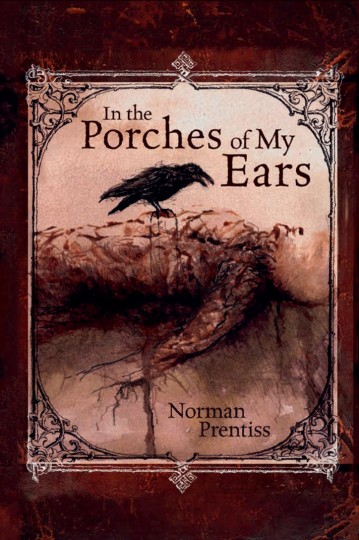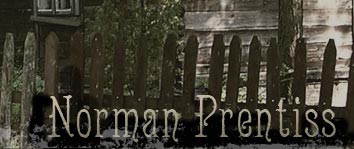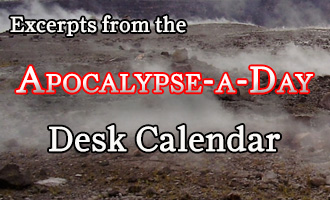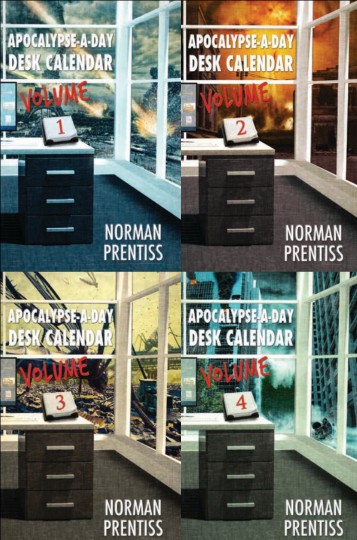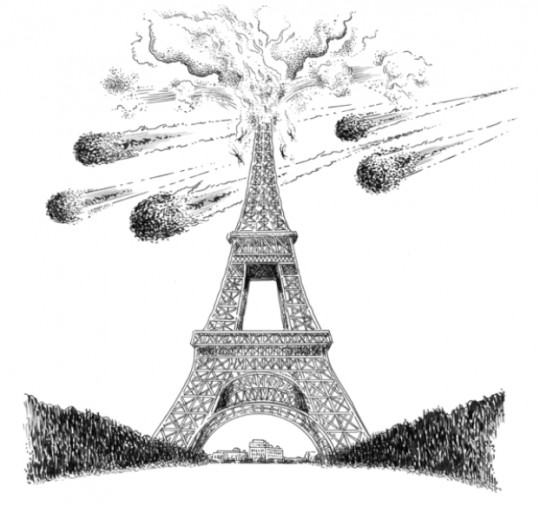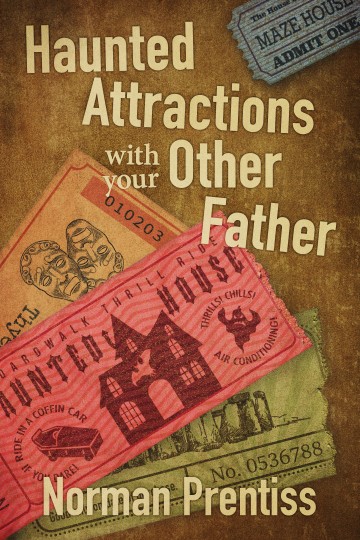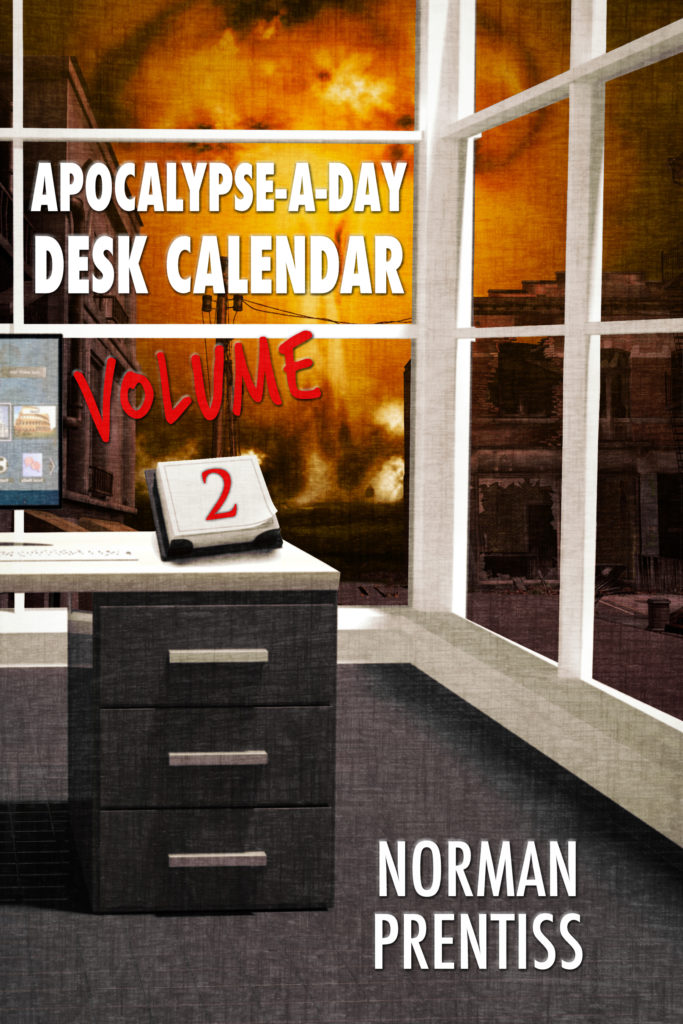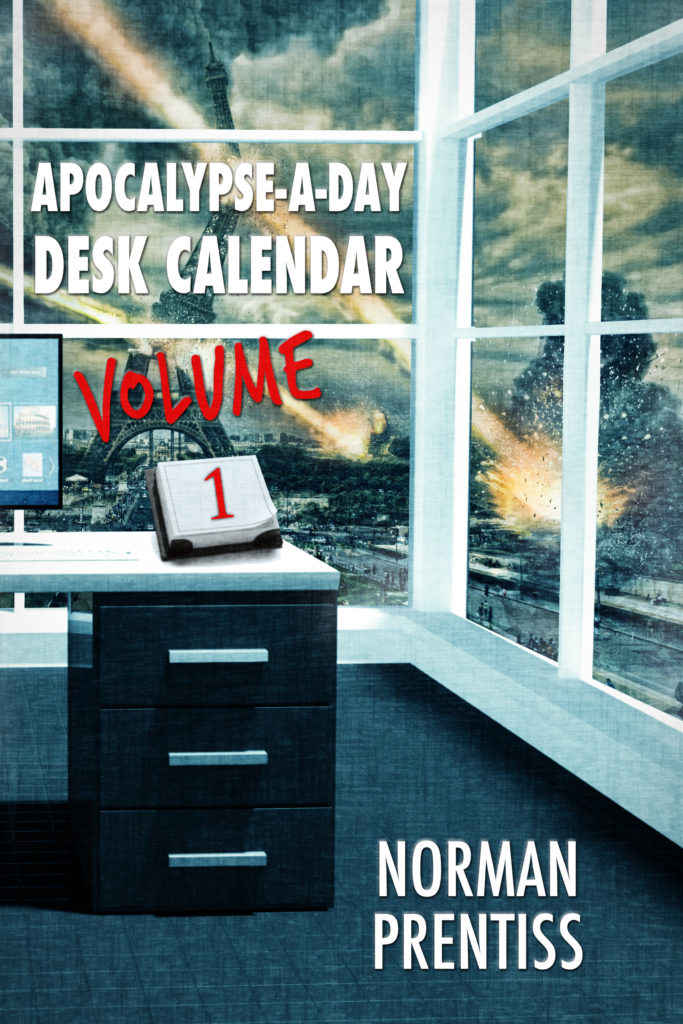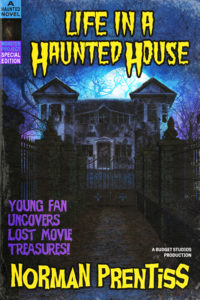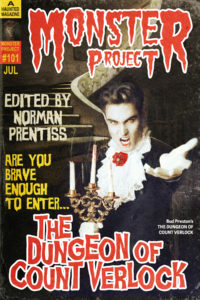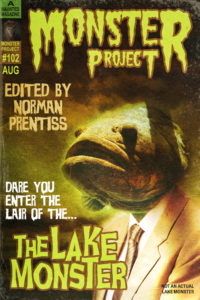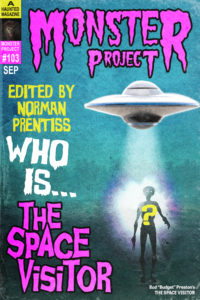My father, James Prentiss, passed away peacefully at his assisted living home yesterday, March 28th. I fictionalized a version of Dad in my first book, Invisible Fences, but I’d changed things to make it a horror story, so the character became less admirable than the real-life counterpart. As a result, I never let my father read that book.
However, much earlier I’d written a story that, for most of its essential details, is an autobiographical account of a summer I spent working with my dad. I wrote the story during my sophomore year of college, and gave it to Dad as a Fathers’ Day gift. It’s not a horror story at all, but I think it’s the first good story I ever wrote. The full text follows below (and to keep it honest, I’ve resisted making editorial changes to the original story, written when I was 20 years old).
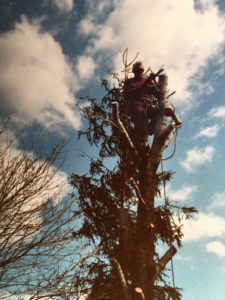
#
TREE WORK
Dad said his personality changed when he was up in a tree, but I didn’t see where it was any different. He talked louder, but that’s because he was about 100 feet — he’d say about 30 meters — above your head.
“You want to drive by the Chambers’ mansion?” he asked me one day.
“Sure,” I said. I had no idea we were anywhere near it — the beltway looks all alike to me — but once he steered the car onto the turnoff, I recognized the thin winding road we had traveled so many times last summer.
“They don’t pay your father for working twelve months anymore,” my mother had said whenever I told her I needed money for something. Because of budget cuts, the County had decided to employ teachers for nine months out of the year. “So you’re going to have to do without money for a while, like the rest of us. I’ve got a $179 electric bill to pay, and the phone bill…”
I had to have a job. But I had filled out applications for all the drug stores in the area, and McDonald’s, and their summer positions had already been filled. I had waited until school was over to start looking (I told my parents I wanted to make sure I got good grades), and by then the stores had hired everybody. It irritated me that Mark Jones — he was always getting his English papers handed back because of sentence fragments, and one time he was almost kicked out of school for gambling during lunch period — could get a job at Drug Fair and I couldn’t.
So I ended up doing the same thing my father did during the summer to earn money: he did tree work, and I was his ground man. He said he’d pay me three dollars an hour, and I wouldn’t have to fill out anymore applications — not even a work permit.
Most of the work we did was around our neighborhood. Where we lived they’d cut down most of the trees to build the houses, so there weren’t very many big trees and the work was easy. I had to send things up to him in the tree by tying this knot (I don’t remember how to do it anymore) onto one of the ropes hanging down from where he was. Usually he’d yell down for me to send up the little chainsaw that he could use up in the tree — it was the same one I got to use on the ground sometimes while Dad used the big blue one that I could hardly lift, let alone cut wood with. But sometimes he would have me send up a pole saw by hooking it into a knot in the rope, or sometimes he would just need a regular hand saw. And then there was a sticky paint can full of some kind of black tar that he painted on the tree where he’d cut a limb off. It was impossible to pick up the can without getting gunk all over your hands, and it wouldn’t wash out too well. Anything I touched would stick to me. I ended up wiping a lot of it onto my pants or T-shirt.
And after he’d been up in a tree for a couple of hours, Dad would call down for something to drink. He was never too specific about what he wanted until the one time I sent him up some really sour tasting lemonade that the lady who lived where we were working gave to me in a thermos container. After that he always asked for water.
The hardest part of my job was dragging brush piles away from a tree. I had to find some big limb with a lot of branches on it, then stack some other limbs and branches on top of it so I could drag a bunch of them away just by pulling the big one on the bottom. Trouble was, I could never stack the piles too well, and they always fell apart halfway before I got them where I wanted them. And I was always getting my arms scratched up by the branches.
But I loved the sound of a big tree hitting the ground. It shook like an explosion, and the tree left a dent in the earth. I had to hold a rope tight to make sure the tree would fall in the right direction (but one time Dad misjudged and this tree crunched up an old wooden fence in Mrs. Henderson’s backyard) while my father cut it down with the big chainsaw.
And when the tree fell down, this meant the workday was almost over. All that was left to do was to cut up the wood. The blue chainsaw would growl through the fallen tree. On the big sections, I would have to hammer in a metal wedge above the cut so Dad could saw all the way through to the bottom without the two pieces closing back together and stopping the chainsaw. I had to stand right over where he was working, and sawdust would fly up in my face and get in my hair. Then we would pile up the logs into a stack for that family to use in their fireplace.
I liked doing the work around our neighborhood, because there was always somebody around to help me with my job. People wanted to watch my father up in the tree, but they would have felt silly just looking. So they would make themselves useful.
“Doesn’t he ever fall down?” they would ask me as they helped drag some brush out of the way.
“Nope,” I said. “That’s what the ropes are for. They hold him up there.”
And sometimes I would run into people from school. “Yeah,” I would them with pride, “that’s my father up in that tree.” It was funny because whenever there wasn’t anybody else around, it never seemed like such a big deal — just my dad doing a job. But with those other people watching and making gasping sounds when he swung from one tree to another, it really seemed like something special. I would kid with Dad that those were the only times when I ever really looked up to him.
After a job was done, Dad would tell clients to give me the check. The gesture didn’t really mean anything — Mother managed all the money in the end — but it was nice anyway. I always told Dad that he never charged enough. Other people who didn’t do half as good a job charged twice as much. “Charge them more,” I said, and you can pay me what I’m worth.” Dad would always laugh at this, like he was paying me too much to begin with.
One time Mrs. Wright gave me the check for my Dad’s pruning two trees and cutting down a dead one. He only charged her fifty dollars. I remember Dad was standing next to me when I took the check to her. It was the first time Mrs. Wright had seen Dad on the ground next to me.
“You’re almost as tall as your father, aren’t you?” she asked me.
“Oh, he’s still got a few centimeters more to grow,” my father said. “But I don’t think he’ll be as tall as I am.”
“How tall are you anyway, Roger?” she asked me.
“I don’t know,” I said. “About — ”
“180 centimeters,” my father interrupted. I let Mrs. Wright see my eyes roll up to the top of my head. Here he goes again, I thought.
“How much is that?” Mrs. Wright asked.
“180 centimeters,” Dad repeated. Dad’s what you might call a metric system militant.
Everything changed towards the end of summer when Dad got this job to do a lot of tree work for some rich people before they moved into their new house (it was more like a mansion). The Chambers had decided that their old house was too small, so they had a new one built just down the road from it. I didn’t think it looked that great, but it sure was big: it had more windows than any house I’d ever seen. It was three stories high, square-shaped, and made of brick in varying tones of red. The front door was white with stained glass church-like windows on either side of it. They were still building parts of it when we started work, and I told Dad it was the kind of house that would probably never look finished.
We worked there every day for almost a month, except on Sundays and when it was raining hard. This was a big change from the way the rest of the summer had gone: we had never had any jobs that lasted more than two days, and I always had a few days in between jobs to rest up for the next one. With this new job, I didn’t like having to get up early every morning, especially to put in such long, strenuous hours. I found myself looking forward to Sundays, or hoping that it would be raining in the morning when I woke, so I could go back to sleep.
And at the Chambers mansion there wasn’t anybody there to help me. The only people around were the servants. They hardly ever came outside, but every once in a while I would catch one of them peeking out of a window or something. They always seemed to be looking at the most embarrassing moments — like the time my father was yelling at me from up in the tree. Dad told me to pull on this rope until he said to stop, but all the time he was yelling “Hold!” I thought he was saying “Pull!” and I almost yanked him out of the tree. He called me a “Blooming idiot” and a “Blockhead” and I don’t remember what else — sometimes I wish he would learn to curse like any normal person — and when he was finished I turned around ant there were two of those servants peeking through a ground-floor window.
“Were you trying to kill me?” he asked when he came down from that big tree to eat lunch. He never seemed to get hungry up there, so I always had to remind him when it was time.
“Yeah,” I said. “To get you back for those limbs you aim at me from up there.”
Lunch was always the best part of the day, and not just because it was a break from working. It was really the only casual time Dad and I ever got to be alone together. We had this whole huge area to ourselves, and we’d sit down and eat wherever we felt like it. No matter what kind of sandwich we packed, Dad said it tasted like sawdust. And I always teased him about how his glasses looked, because of the black strap he wore to keep them from falling off while he was up in a tree. The black looked really funny against his gray hair. His hair had always been grey, but these were the only times I ever really noticed it. And lunch was the only time he’d let me see how tired he was — he never looked tired when he was up in a tree.
I never did see what the Chambers looked like: the only other people I saw while I was working there, besides the servants, were two plumbers working outside one day. They were pretty crude. The only time they ever spoke to me was when the bigger one was walking out of the woods and he asked me what poison ivy looked like.
“I don’t know,” I told him. “It’s got three leaves, is all I know.” Dad had pointed the stuff out to me a bunch of times, but whenever I would point to something later that I thought was it, I would always be wrong. I wasn’t allergic to poison ivy anyway, so it didn’t really matter.
“Well, I was taking a leak,” this guy told me, “and I hope I didn’t get any on my thing.” If you’re only going to speak to somebody once, I don’t that that’s what you should talk about.
It didn’t seem like the job for the Chambers would ever end. Before I could finish the ground work for one tree, Dad was already climbing another. I got sick of the smell of sawdust and my own sweat, and I thought about Mark Jones working in an air-conditioned store and not having to do anything more strenuous than push buttons on a cash register. I began to watch the clock for lunch more than ever, and it got so that every day I wished we would quit early. But Dad never did. Towards the end, I decided I never wanted to do tree work again.
But once the trees were down, or pruned, the job wasn’t over. We had to throw all the dead limbs into this huge truck Dad rented, and then haul it off to the dump. We never had to do this step when we worked around our neighborhood — the people who lived there would take care of it themselves — and it kind of made me angry that the Chambers never had to do this kind of work, that they were never around to see what we were doing for them. But when Dad talked to the Chambers, he told them that he would clean up everything afterwards. They didn’t want any logs — a big house like theirs, and they didn’t even have a fireplace.
That’s how Dad hurt his back, lifting up a big log and trying to load it on the back of the truck. Everybody worried so much that he would hurt himself while he was up in a tree, and his back went out while he was doing something so simple on the ground. He finished up the job, but after that his Doctor told him he couldn’t do tree work anymore.
“Looks like we did a good job,” Dad said a year later. “Those two trees out front are going to make it, and I wasn’t sure that they would.”
I couldn’t tell one way or the other how much good we’d done, but I could see the satisfaction in Dad’s smile — with just a hint of sadness behind it because he knew he could never accomplish anything like it again.
“But the house still doesn’t look finished,” I told him.
Dad laughed. “You want to stop in and talk to them?” he asked.
“No,” I said. “We don’t really know them.”
“You sure? They’re pretty important people.”
“Nope,” I said. “I don’t see how they’d really be that different from anyone else.”
Dad turned the car around, and we left the Chambers’ mansion behind. “I have to be at work in two hours, anyway,” I told him. I had a job at Drug Fair.
I hated it.
# # #
